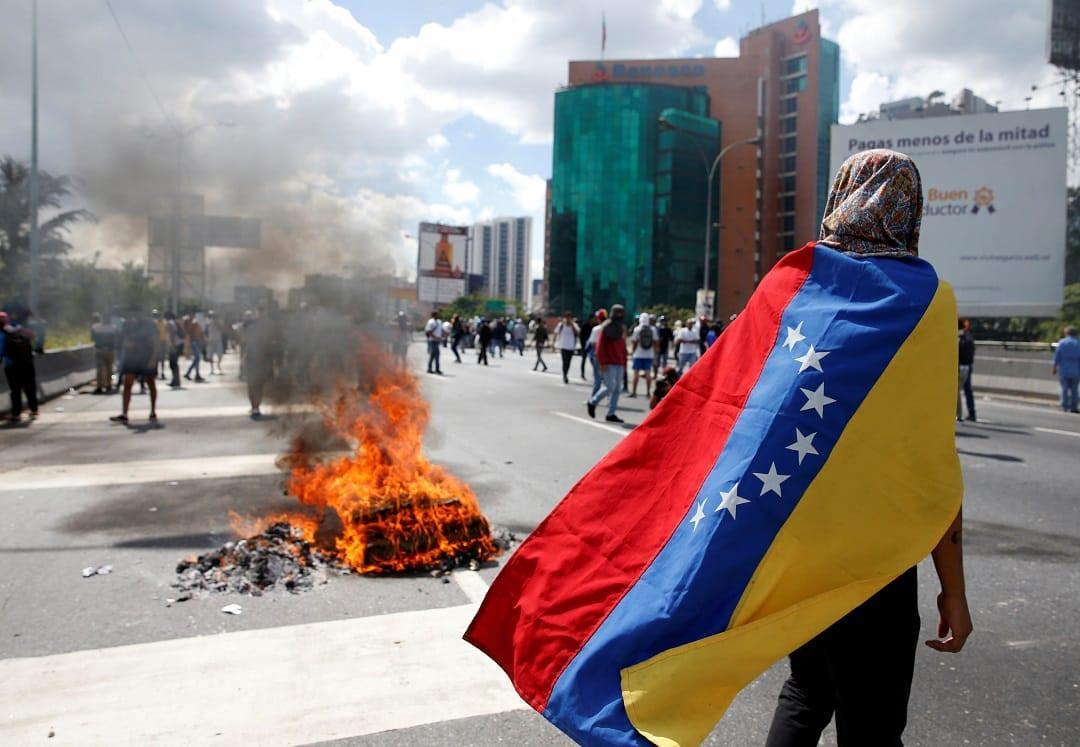
On an avenue in Maracaibo, the once-thriving heart of Venezuela’s oil industry, the buses no longer run. Instead, people squeeze onto a dinky tourist train to take them home.
On an avenue in Maracaibo, the once-thriving heart of Venezuela’s oil industry, the buses no longer run. Instead, people squeeze onto a dinky tourist train to take them home.
Maracaibo’s crippled transportation system is symptomatic of Venezuela’s deterioration, locked in a deep economic and political crisis despite sitting on the world’s largest oil reserves.
Transportation decay, creaking power and water grids, endless supermarket lines, rising crime: in a country ruined by falling oil prices, mismanagement and political turmoil, the crippled economy has cut a swathe through every stratum of society.
In Venezuela’s second city, 52-year-old Victor Colina drives the jaded little tourist train which he has pressed into service as public transport. “I’m going to see how I get on with it,” said the former appliance repairman.
About 20 people board its single carriage. The other two no longer run, because Colina has no tires for them.
In the capital Caracas, shop assistant Alida Huzz has a modest dream: to eat a nutritious meal with protein sometime soon.
“I’ve been dreaming of chicken, rice and potatoes for a long time,” she said.
“I have rice and potatoes, but no chicken. You work and work for nothing. Before we could eat what we wanted, but not now.”
Her neighbor, Reina Rojas, receives a government food parcel every six weeks at subsidized prices, but it is too little to live on.
“There are only three kilos of rice! Three packets of spaghetti and oil! Who can live on that?” asked Rojas.
It’s the kind of pressure-cooker despair that, in most countries, jolts rulers from their perch come election time.
However, crisis-weary Venezuelans believe the vote in the weekend- in which President Nicolas Maduro seems set for a second term despite presiding over a ruined economy -- will change nothing.
Journalist Federico Pereney, 41, quit his job in September, after realizing that he had just blown his entire salary on a pizza with his girlfriend. It’s possible in Venezuela -- inflation is running at more than 13,000 percent and the minimum wage of around $36 will buy you no more than a kilogram (two pounds) of meat.
He believes elections will provide no respite for Venezuelans’ suffering.
“Maybe there has to be an internal change in the government, because there is no opposition,” he said.
Now Pereney works for himself, even if he struggles to make ends meet with what he earns on top of his girlfriend’s salary.
“We don’t go to the movies any more, it’s too costly,” he said. They also can’t afford to repair the air conditioning in his car, or buy clothes. The couple mend and make do -- and pizzas are consumed at home now.
Maduro, 56, has hiked the minimum wage three times in 2018 to try to keep pace with runaway inflation.
Between sobs, Rojas, a 50-year-old housewife, told AFP her eldest son dropped out of university to work on a building site in Ecuador.
“He sends money to help us,” she explained.
Last week, the Red Cross said at least one million people had entered neighboring Colombia from Venezuela in the past year, many of them seeking work in third countries such as Ecuador and Chile.
Corina Sosa’s artwork-decorated home is located in an affluent suburb of eastern Caracas. Buying food poses no problem, but she and her lawyer husband have seen their lifestyle squeezed and have cut back on trips and restaurant visits.
Their savings are paying for their children’s university education abroad. “Before we could meet with friends at home, go out to eat, now practically everything comes down to buying food and paying salaries (of employees). We used to save up to travel, but not now,” said Sosa.
Whenever her younger son Pedro goes out for the night she doesn’t sleep, worrying he has become another statistic of a soaring crime rate.
“I think the phone is going to ring to say he’s been kidnapped,” she said.
The family’s fleet of 4x4s in the driveway are immobile for lack of spare parts, either unavailable or too expensive. Meanwhile Pedro, a 28-year-old lawyer, has a different yardstick by which to measure the family’s sharply-reduced circumstances.
“Asking for a bottle of whiskey in a restaurant is impossible.”